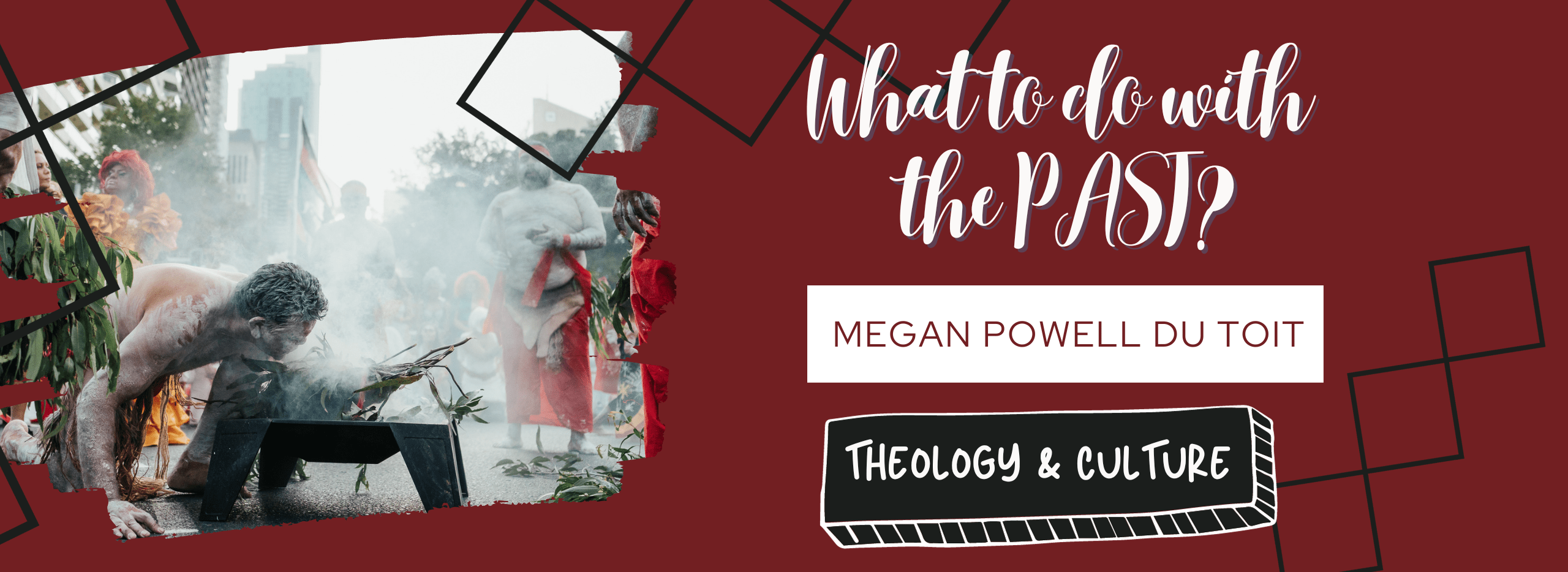What do we do with the Past?
 Sep 27, 2023
Sep 27, 2023

Theology and Culture
A new regular offering in reCharge
Both remembering and forgetting are important actions
Our country is currently grappling with the referendum. The question of the past is at the core of why this referendum is taking place, and why it is so difficult to discuss. Ponder on these thoughts as Australia moves closer to the referendum date.
By Rev Dr Megan Powell du Toit
Nations, families, relationships, and individuals all have pasts and memories. We all know the difficulty of a relationship in which hurts of the past are continually brought up and rehashed, with no real resolution. On the other hand, it is also a common experience to be frustrated by situations in which the past is ignored, even though it continues to affect the present.
Memory is an oft-visited topic within the stories we tell. Apple TV series Severance, released last year, imagines a company in which people are able to sever their work memories from their outside work memories. It is sold as an ideal work-life balance in which work does not impinge on your outside life. But human life is not so easily divided, and memory is core to identity. Memory is essential to living as a moral human being in the world.

A 20-year-old movie comes to my mind as I think about the significance of the past. Eternal Sunshine of the Spotless Mind is a film in which two people decide to undergo a procedure to erase each other from their memories. But the film suggests reality and identity are more complex than that. Forgetting parts of the past will not bring about the desired change. The sun does not shine for the amnesiac.
In the Scriptures
How is the past treated in the Bible? The concept of remembering is laden with the idea that memory affects action in the present. When God remembers the people of Israel, it means God keeps the promises made to them.
Memory is connected to faithful love. God sees their troubles and acts to save. In Exodus 2:24 tells how the saving act of the exodus occurs because “God heard their groaning and he remembered his covenant with Abraham, with Isaac and with Jacob.”
The people of Israel are also to engage in remembering. They are to remember the God who saved them and not to lose heart. They also have a law code which insists upon their active remembering of their past as enslaved people.
This memory is to continually result in just action in the present towards others. For instance, in the Deuteronomy 5 account of the 10 Commandments, they are to keep sabbath along with both servants and foreigners, for they are to “remember that you were slaves in Egypt.” (v15).
!["The Israelites have a law code which insists upon active remembering of [BEING] enslaved."
Rev. Megan Powell du Toit
Publishing Manager
Australian College of Theology](https://i0.wp.com/www.tasbaptists.org.au/wp-content/uploads/2023/09/Megan-Powell-du-Toit_-Remembering-TB-IG-Post.png?resize=525%2C525&ssl=1)
Action in the present
Yet we are also told, God will remember our sins no more (e.g. Jer 31:34, Heb 8:12). Forgetting, like remembering, is about action in the present. This means that God will not act in judgment against them. This is the consequence of what Jesus has done on the cross.
Yet we are also told, God will remember our sins no more
Our sins have been borne by Jesus. So, sins cannot ever be treated as if they did not occur. They are “forgotten” here because restitution has been made.
After weeping recently, I was comforted when I recalled that God wipes away tears as we enter the time to come (Rev 21:4). That is, the tears are not forgotten. They are lovingly tended as we enter into new life.
So, what do we do with the past? The past, and our memories of it, are part of who we are and how we love. As we exist within our various communities, we are called to remember, and forget, in ways which seek the good of all and enact justice.

Rev Dr Megan Powell du Toit is a Sydney-based Baptist minister, editor, writer, academic, and podcaster. She is Publishing Manager at the Australian College of Theology and co-hosts the podcast With All Due Respect. She is also the Editor of Colloquium: The Australian and New Zealand Theological Review
October/November/December 2023
- Waking Up to the Christmas Dream by Andrew Turner
- Ministry Profile Matty Coppin, Burnie
- Day of Courage en-courages by Fiona Bradley
- Around the Churches October-November 2023
- Tasmanian Baptist Council Featuring new council members 2022-23
- October Assembly Report by Alan Firth
- Wynyard Baptist Church Profile by Pastor Owen Muskett
- Ministry Profile Anna-Maree Richardson, Assistant Administrator
- The Scandal and the Wonder of Baptism by Andrew Turner, Crossover
- Our New College! Announcement from the Tasmanian Baptist Council
- October NEWS | November NEWS | December NEWS
DOWNLOAD Recent (PDF) Issues of ReCharge






